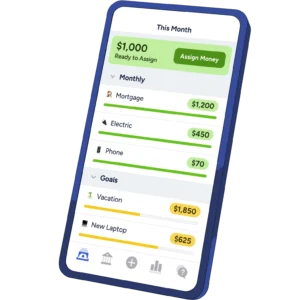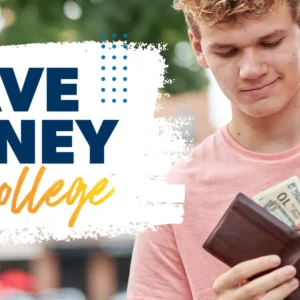You have made the bold decision to pursue graduate school, but now you’re asking yourself: Can I get FAFSA for grad school? What does it cover? Do I qualify if I live in the UK but want to study in the U.S., or vice versa? Can it help with living costs, or just tuition?
If these questions have been running through your mind, you’re not alone. Funding graduate education can feel like navigating a financial maze, especially when it involves federal aid systems like FAFSA. The good news? FAFSA isn’t just for undergrads—it can help graduate students too. But there are some important nuances to understand, especially if you’re an international student, dual citizen, or planning to study across the pond.
Let’s break this down in a clear, no-jargon, and practical way.
Why FAFSA Matters for Grad School
Here’s the deal: graduate school in both the USA and the UK can be expensive. From tuition fees to rent, books, and everything in between, your costs can quickly spiral. Federal aid through FAFSA (Free Application for Federal Student Aid) is one of the most accessible and reliable sources of financial help—if you know how to use it.
While FAFSA is a U.S. federal program, it does offer aid for eligible graduate and professional degree students, just under different terms than it does for undergrads.
Quick Answer: Can I Get FAFSA for Grad School?
Yes, you can get FAFSA for grad school if you are a U.S. citizen or eligible noncitizen attending an accredited graduate program in the United States.
However, graduate students are considered independent, which changes what you’re eligible for:
-
No Pell Grants (those are only for undergraduates)
-
No parent’s income is considered
-
Eligible for Direct Unsubsidized Loans and Grad PLUS Loans
-
Some need-based institutional aid may also require FAFSA
Read Also: Does Netflix Have a Student Discount?
And for UK residents? If you’re studying in the U.S., it depends on your immigration/residency status. If you’re a U.S. citizen or eligible non-citizen living in the UK, you may still be eligible for FAFSA.
What Types of FAFSA Aid Are Available for Grad School?
Let’s unpack what FAFSA offers for graduate students.
1. Direct Unsubsidized Loans
-
Fixed interest rate (around 7.05% as of 2024–25)
-
You can borrow up to $20,500 per academic year
-
Interest starts accruing immediately
This is the primary federal loan available to graduate students. Unlike subsidized loans, the government does not cover the interest while you’re in school.
2. Grad PLUS Loans
-
Credit-based
-
Covers the remainder of your cost of attendance after unsubsidized loans
-
Higher interest rate (about 8.05% as of 2024–25)
Good for covering gaps, especially in pricier programs.
3. Work-Study (Sometimes)
Some grad students may qualify for Federal Work-Study programs, especially in public service fields. It’s campus-dependent, so check with your school.
Who’s Eligible to File FAFSA for Graduate School?
Here are the key eligibility points:
-
You must be a U.S. citizen or eligible non-citizen (like a green card holder or certain refugee/asylee statuses)
-
You must be enrolled at least half-time in a graduate or professional degree program
-
Maintain satisfactory academic progress
-
Not be in default on federal loans
If you are a U.S. citizen living in the UK, you can still apply for FAFSA—your location doesn’t disqualify you. But your graduate program must be U.S.-based and FAFSA-approved.
What About UK Residents or British Students?
If you are a UK resident and do not have U.S. citizenship or green card status, you are not eligible for FAFSA.
Alternative options for UK residents:
-
Postgraduate Loans (UK government): Up to £12,471 (as of 2024–25) for eligible master’s programs
-
University scholarships and bursaries
-
Commonwealth Scholarships for certain international students
-
Private lenders or educational loans like Prodigy Finance (though be wary of interest rates)
Read Also: How to Save Money as a College Student
If you plan to study in the U.S., you’d likely need to explore institutional aid, private loans, or scholarship opportunities offered by the universities.
How to Apply for FAFSA as a Graduate Student
Step 1: Gather Your Information
You’ll need:
-
Your Social Security number
-
Driver’s license (if applicable)
-
Tax returns (prior-prior year; e.g., 2023 taxes for 2025–26 FAFSA)
-
Bank statements and investment info
No need for parental info—grad students are considered independent by default.
Step 2: Fill Out the FAFSA at FAFSA.gov
-
Create your FSA ID
-
Complete the application (you can list up to 20 schools)
-
Submit ASAP—some aid is awarded on a first-come, first-served basis
Step 3: Review Your Student Aid Report (SAR)
This shows what you might qualify for. Your grad school will use this to build your financial aid package.
Common Questions Answered
Can I get a Pell Grant for grad school?
No. Pell Grants are only available to undergraduates. However, you can still get federal loans.
Is FAFSA required for scholarships?
Many grad schools require you to complete FAFSA to be considered for institutional grants, scholarships, or fellowships—even if you’re not taking out loans.
Can I use FAFSA for an online master’s program?
Yes, as long as the online program is accredited and FAFSA-participating.
Do I have to accept all aid offered?
Nope. You can choose to decline or reduce loan amounts—it’s entirely up to you.
Pro Tips to Maximize Aid
-
Apply early: Some programs have early deadlines for aid consideration.
-
Look for assistantships: Many universities offer graduate assistantships that include stipends or tuition waivers.
-
Budget wisely: FAFSA loans cover tuition plus living costs, so create a monthly budget to stretch those dollars or pounds.
-
Check for field-specific aid: STEM, teaching, social work, and healthcare fields often have special federal forgiveness or funding programs.
Final Thoughts: So, Can You Get FAFSA for Grad School?
Yes, FAFSA is available for graduate school, but only for certain types of aid. You won’t get a Pell Grant, but you’ll still have access to unsubsidized loans, Grad PLUS loans, and potentially other aid based on your school and program.
For U.S. citizens and eligible residents, filing your FAFSA is a no-brainer—it opens the door to federal aid, school-based funding, and even some scholarship consideration. If you’re in the UK or planning to study internationally, understanding FAFSA is still valuable, especially if you’re dual-national or considering a U.S. program.
Don’t wait—start your FAFSA application as early as possible. Even if you’re unsure what program you’ll attend, getting your info in early gives you a strong head start.
Recap: Key Takeaways
-
Yes, you can get FAFSA for grad school—just not all the same aid as undergrads.
-
You’ll mainly be eligible for Direct Unsubsidized and Grad PLUS Loans.
-
Graduate students are considered independent, so no parental info is needed.
-
FAFSA helps you qualify for institutional aid and scholarships, too.
-
UK residents without U.S. citizenship are not eligible, but have other funding routes.






